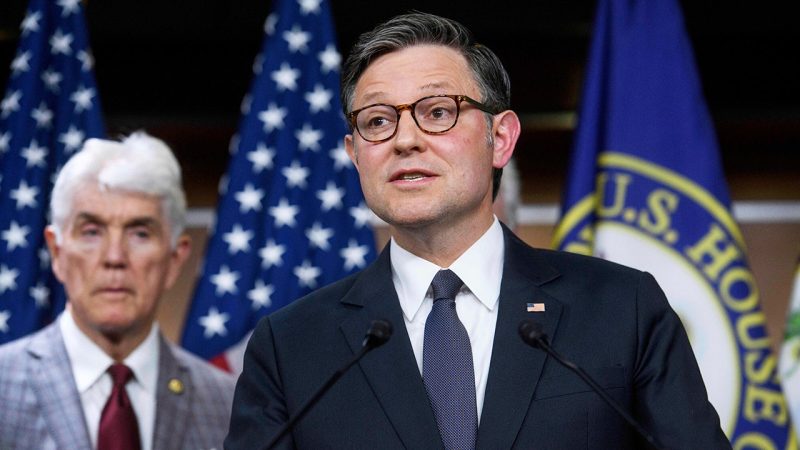
House Speaker Mike Johnson is pushing an aggressive timetable to pass President Trump’s ambitious budget bill, dubbed the “One Big Beautiful Bill Act.” This comes after a setback on Friday when five Republicans joined Democrats to block the bill’s initial advancement. Johnson remains confident, however, asserting that the House is still on track to pass the legislation by Memorial Day.
He highlighted the extensive work already completed by the House Budget Committee, emphasizing the significant projected savings and investments outlined in the bill. Johnson views this legislation as a crucial step in fulfilling the mandate given by the American people during the last election. Key components include historic tax relief for workers, substantial investments in border security, and a focus on restoring American energy dominance while strengthening vital programs like Medicaid and SNAP for eligible citizens.
The bill also aims to make Trump’s 2017 tax cuts permanent, eliminate taxes on overtime and tips (a 2024 Trump campaign promise), and provide tax relief for seniors on Social Security. Johnson further stressed the inclusion of provisions to incentivize American-made products and manufacturing.
Despite a GOP mutiny and significant internal disagreements, particularly regarding the timeline for Medicaid work requirements, Johnson expressed confidence in reaching a compromise. He acknowledged that his party’s leadership doesn’t expect any Democratic support for the bill, placing the onus entirely on Republicans to deliver on their promises.
Critics within the Republican party, such as Representatives Ralph Norman and Chip Roy, remain unconvinced about the seriousness of proposed spending cuts. They advocate for a faster implementation of work requirements for able-bodied Medicaid recipients. While Johnson shares their goal, he cited concerns about states’ ability to adapt their systems quickly enough for effective enforcement.
Johnson’s unwavering confidence stems from the support the bill has garnered from the Office of Management and Budget Director and nearly 500 conservative organizations. He sees this as a once-in-a-generation opportunity to significantly reduce spending and enact key policy changes, emphasizing the consequences of failing to pass the bill before the end of the year. The potential failure could, according to Johnson, result in the largest tax increase in U.S. history.










